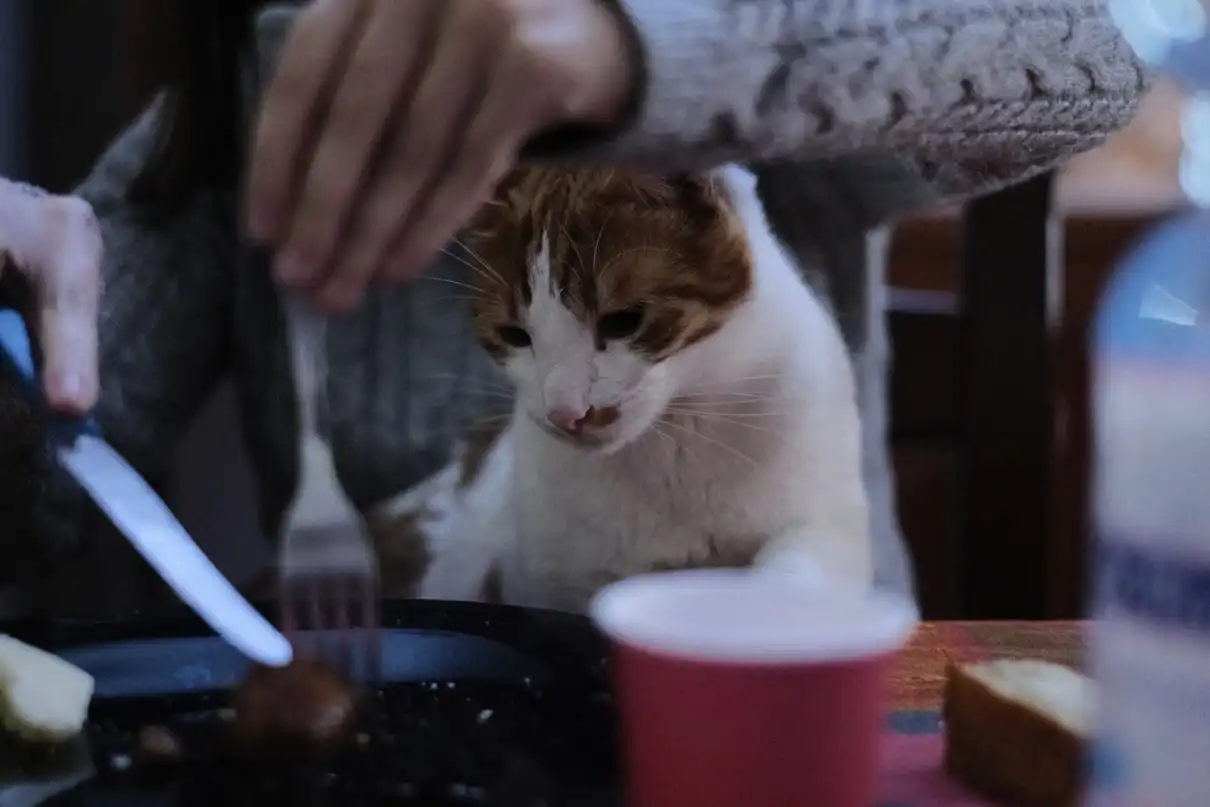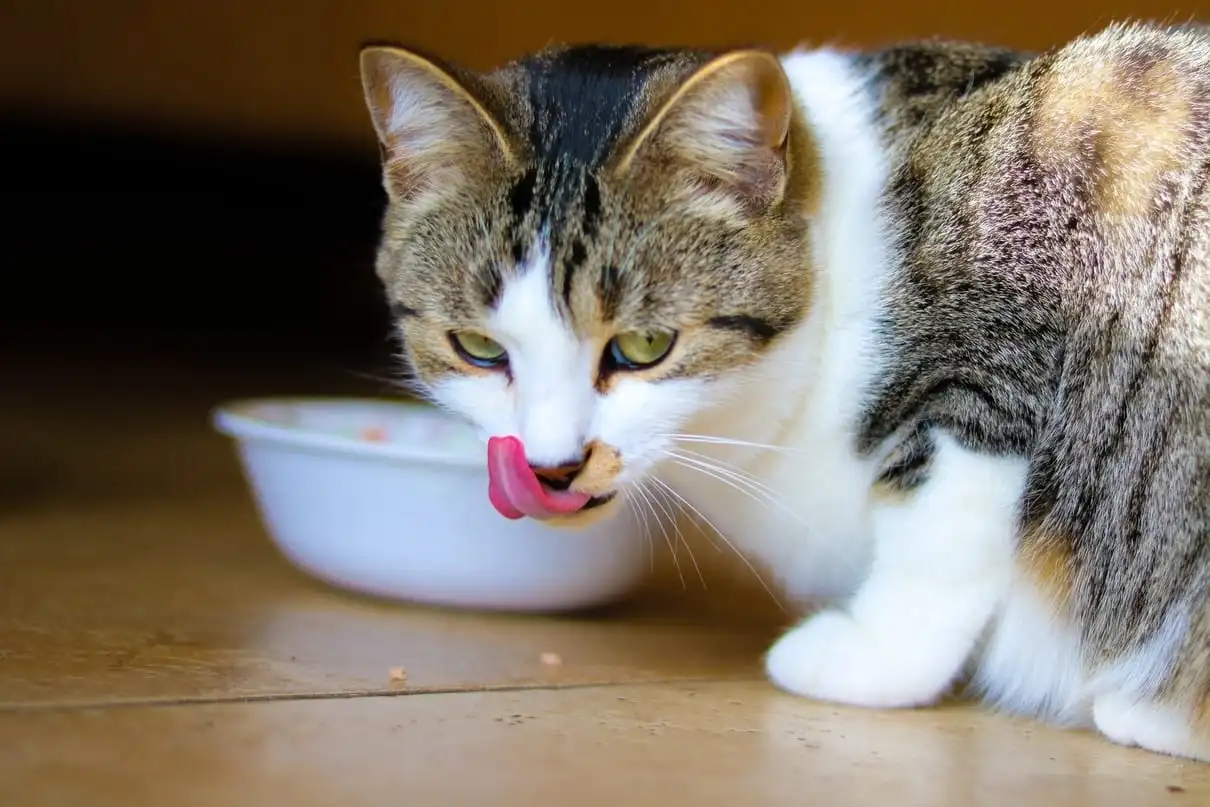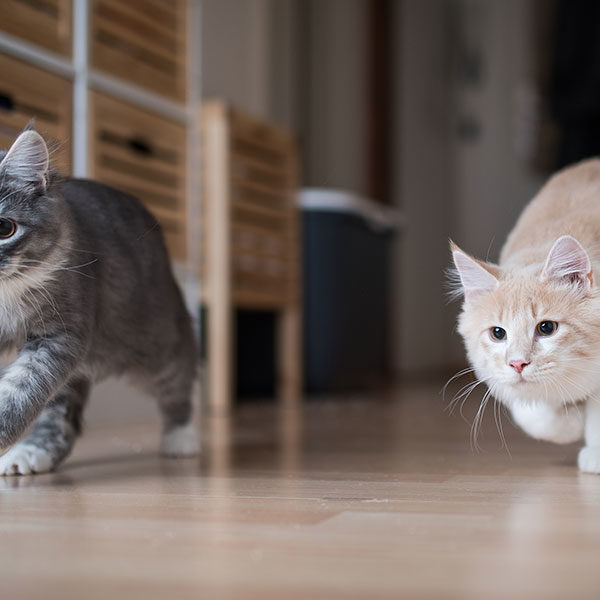As food technology evolves, humans begin to opt for clean eating and eco-friendly food, such a quorn. Plant-based diet enthusiasts couldn’t be more excited to take on their entire family, including their lovely cat to join in the adventure.
Hence, the question, can cats and kittens eat quorn? Is quorn healthy for cats?
What Is Quorn?
Quorn is a meat substitute product, originating in the UK and sold primarily in Europe.
Quorn is made of liquid that is fermented to form a substance called mycoprotein, and is derived from a fungus or mould called ‘ Fusarium venenatum‘.
Quorn was originally developed in response to fears of a world protein shortage in the 1960s, partly fueled by the failure to realize that most varied diets provide plenty of protein.
These days, quorn became widely available in supermarkets, usually as meat substitutes such as vegetarian mince or chicken alternatives or as an ingredient in ready meals.

Different types of foods can be made from quorn, like chicken nuggets, quorn mince and processed cheese. In the UK they have all become a part of the staple diet within a typical household, and an affordable option to put vegan food on the table.
The official Quorn website is quite coy about the manufacturing process, stating only that “Quorn is produced by a process of fermentation similar to that used in the production of yoghurt or yeast in bread“.
However, further research suggests that, at least originally, the fungus was nourished using the waste products from cereal manufacture and that, as it may produce adverse effects as it is naturally low in nutrients other than protein.
Here’s a comparison between the nutrient content of Quorn, lean beef mince and lentils:
| Quorn | Lean beef mince | Green & brown lentils | |
| Protein | 14.1g | 24.7g | 8.8g |
| Fat | 3.2g | 8.7g | 0.7g |
| Carbohydrate | 1.9g | 0g | 16.9g |
| Iron | 0.6mg | 2.3mg | 3.5mg |
| Sodium | 348mg | 75mg | 3mg |
| Folic acid | 21mcg | 20mcg | 30mcg |
Can Cats Eat Quorn?
Although quorn is generally safe for humans, it can be quite detrimental for cats as it is made with a mixture of artificial flavorings, onion and garlic powder, and different herbs and spices cooked in palm oil, all of which are toxic to cats, and can be a major cause of long-term heath issues.
All of these ingredients can be found on the ingredients list on the packaging.
Is Quorn A Good Substitute For Animal Protein For Cats?
As many of us rely on pets for companionship, we need to be extremely diligent with our cats and be extra careful with the type of feed we give our cats. Make sure your cat eat cat food on a regular basis.
Most quorn products are packed with artificial flavourings and contain ingridients invented solely for human consumption, which can potentially lead to detrimental consequences for cats.
You should ideally consult a vet before introducing new foods to cats and kittens. Just like humans, cats need six essential nutrients to be well, consisting of protein, carbohydrates, fats, minerals, water and vitamins.
My Cat Ate Quorn – What Should I Do?
First of all, do not panic!
Monitor your cat for any changes in behavioral patterns, and take your cat to the vet if you notice anything unusual.
Make sure to check the ingredients list if they contain onions and sugary food, and notify your vet if they do.

Symptoms Of Quorn Poisoning In Cats
Because quorn products are bad for cats, they can cause problems with your cats’ digestive system and all sort of side-effects which indicate quorn poisoning.
Primarily, watch out for signs of heavy panting, excessive urination and restlessness when cats eat quorn.
Vomiting, anaemia and dehydration in cats are all symptoms of poor nutritional balance. When cats eat quorn in massive quantities, it can cause these cats to become physically weak and ill.
If you are noticing any of these symptoms, make sure to contact your veterinarian immediately. There is no time to waste when it comes to these types of problems.
Common quorn poisoning symptoms include:
- vomiting
- diarrhea
- breathing problems
- loss of appetite
- excessive thirst.
- pale gums
- difficulty breathing
Conclusion
It is not ok to feed your cat quorn and can lead to detrimental health effects if you do so. Quorn contains ingredients that are not intended for cat’s consumption, and can even lead to poisoning.
If you notice any changes in your cat’s behavior after he/she ate quorn, make sure to contact the veterinarian immediately!

Leave a Comment